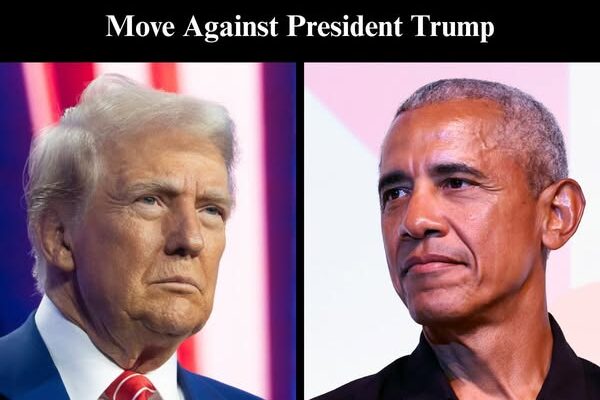Obama’s Chilling Vision for Online Speech Sparks Alarm
Former President Barack Obama has laid out a controversial and unsettling vision for how online speech should be controlled — a plan that many find deeply troubling.
At The Connecticut Forum on June 17, 2025, during a conversation with historian Heather Cox Richardson, Obama argued that the government must have the authority to impose “restraints” on what can be shared online. His goal? To stop the spread of what he calls “disinformation” and “misinformation.”
“I’ve said this before, but it bears repeating,” Obama told Richardson. “You and I can debate something as simple as the design of a side table — maybe you don’t like the color or the finish. That’s a reasonable conversation.”
“But if I insist that the side table is actually a lawnmower, you’d think I was crazy. And if I truly believed it, I’d think you were crazy. Today, we’re stuck in these basic arguments over facts,” he explained.
Obama warned that this erosion of truth damages public trust and creates a dangerous vacuum. “Those in power, those with money, exploit this uncertainty. Vladimir Putin and the KGB had a saying — later echoed by Steve Bannon — that propaganda doesn’t need to convince people the message is true to be effective.”
His chilling message: without government intervention, the online world becomes a battlefield of distorted facts, threatening democracy itself.
“You just have to flood the zone with so much falsehood — they use a different word — but basically, so much untruth, so constantly, that eventually people stop believing anything,” Obama explained bluntly.
He painted a vivid picture of the consequences: “It doesn’t matter if a candidate running for office is constantly, hypothetically, spouting lies, or if a sitting president claims he won an election he actually lost — saying the system was rigged when he loses, but suddenly it’s not rigged when he wins.”
Though never naming names, the reference to former President Donald Trump was clear.
Obama warned, “It’s not about whether everyone believes the lies — it’s about everyone giving up, throwing up their hands and saying, ‘Well, I guess it doesn’t matter anymore.’”
“That’s exactly what’s happened in one of our major political parties,” he said. “A large number of people know the truth but choose to pretend otherwise. And that’s dangerous.”
To combat this, Obama called for innovation: “We need to experiment with new forms of journalism, rethink how social media can reinforce facts and clearly separate facts from opinions.”
“We want diversity of opinion,” he emphasized. “But we don’t want diversity of facts. How do we teach our kids to tell the difference?”
Turning to the role of government, Obama stated, “This is a huge task for social media platforms. And yes, it will require some government regulatory constraints — carefully designed to respect the First Amendment — but that also recognize the difference between allowing free voices and business models that prioritize the most hateful, polarizing, or violent content.”
“It’s going to be a major challenge for all of us to face,” he concluded.
